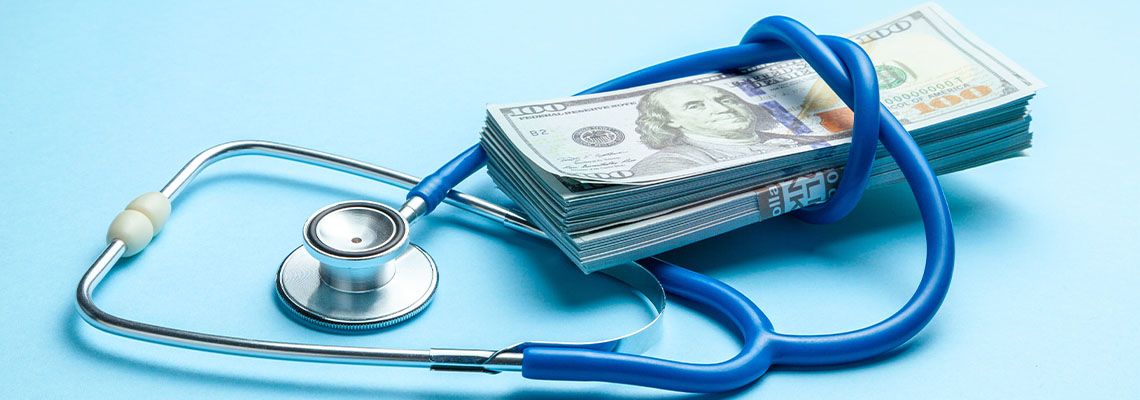
Medical Debt & Bankruptcy
Healthcare debt is the leading cause of bankruptcy in America. Thousands of families face bankruptcy each year due to the overwhelming burden of hospital bills and medical expenses. Often, bankruptcy may be the only way out. A practiced attorney can help advise you of your options when filing for bankruptcy; that way, you can look to a brighter future.
At the Bond Law Office, our team has everything necessary to walk you through the bankruptcy process. We have the resources, knowledge, and skill to provide clear legal direction. We proudly serve clients in Fayetteville, Fort Smith, and the Arkansas River Valley.
Eliminating Medical Debt through Bankruptcy
An estimated 530,000 families file for bankruptcy primarily due to crushing medical bills. Beyond the debt burden itself, the key reason why people file for bankruptcy is that it works.
Filing for medical bankruptcy allows families and individuals to get rid of medical debt through either Chapter 7 or Chapter 13 bankruptcy.
Filing for bankruptcy does not clear one specific type of debt. Bankruptcy clears all eligible debts off the board. Consequently, families and individuals who file for bankruptcy protection may be eligible to get rid of other debts such as credit cards, personal loans, car debts, and other unsecured liabilities.
Medical Debt and Credit Scores
It is a common question to ask yourself whether medical debt affects your credit score. The answer is yes and no.
First of all, medical debt does not affect your credit score. Medical service providers do not report medical debt to credit bureaus such as TransUnion or Equifax. As a result, medical debt does not appear on your credit score.
Second, the bad news is that unpaid medical debt does appear on your credit score. The reason for this is that medical service providers turn over unpaid debt to third-party recovery firms. These firms report the unpaid debt to credit bureaus affecting the debtor’s credit record.
Filing for Medical Bankruptcy
There are two main ways to get relief from medical debt.
Chapter 7
Chapter 7 bankruptcy allows debtors to discharge eligible debt (including medical bills) from their liability. However, a Chapter 7 bankruptcy filing appears on the individual’s credit report for ten years. This period is not negotiable, and debt cannot be stricken from the credit record sooner. Please bear in mind that Chapter 7 bankruptcy does not make a person ineligible for future credits and loans.
To qualify, debtors must demonstrate that they cannot make monthly payments. Specifically, employed or unemployed individuals must show they do not have the means to honor their commitments. Please note the court may ask debtors to liquidate assets before qualifying for Chapter 7 bankruptcy.
Chapter 13
Chapter 13 bankruptcy allows debtors to catch up on their liabilities. In other words, Chapter 13 allows debtors to restructure their liabilities by making payment plans, renegotiating interest rates, etc. Chapter 13 filings appear on a debtor’s credit report for seven years.
To qualify, debtors must demonstrate they cannot repay debts but earn enough to pay if the debt is restructured. For instance, freezing interest accrual can help debtors catch up and get back on track.
Pros and Cons of Filing for Medical Debt Bankruptcy
Individuals and families in Fayetteville and Fort Smith, Arkansas, and neighboring areas such as the River Valley, Harrison, Eureka Springs, Clarksville, Waldon, Mena, and Van Buren must consider the pros and cons of filing for medical bankruptcy:
Pros:
Discharges all eligible debt.
Gives a chance to start over clean.
Takes the overwhelming burden off.
Allows families to get ahead.
Does not limit the ability to apply for future credit.
Cons:
Bankruptcy filings stay on credit reports for 7 to 10 years.
Folks may need to wait two to three years before applying for a mortgage.
Debtors must not incur additional debt.
Debtors must ensure they do not fall behind again, especially when filing for Chapter 13.
Thinking Before Acting
Filing for bankruptcy is a major decision. That is why debtors must ask themselves the following questions before deciding to file for bankruptcy:
Do I really need to file for bankruptcy?
Is there any way I can renegotiate the debt directly with creditors?
Can hiring a bankruptcy attorney help me negotiate directly with creditors?
Do I have any assets that could help me cover my debt?
These are difficult questions, but they can help avoid future issues. An experienced attorney can help you with all of your questions and concerns.
Seeking the Right Legal Counsel from a Trusted Bankruptcy Attorney
Talking to a seasoned bankruptcy attorney is always a good idea before filing for bankruptcy protection. A trusted attorney can review the pros and cons to make the right choice. Also, a top bankruptcy attorney can often work with creditors to restructure debt without going through bankruptcy proceedings. Ultimately, it is best to negotiate directly with financial institutions.
At the Bond Law Office, we take pride in helping American families get ahead. If you are struggling with the overwhelming burden of medical debt, contact our team today.
